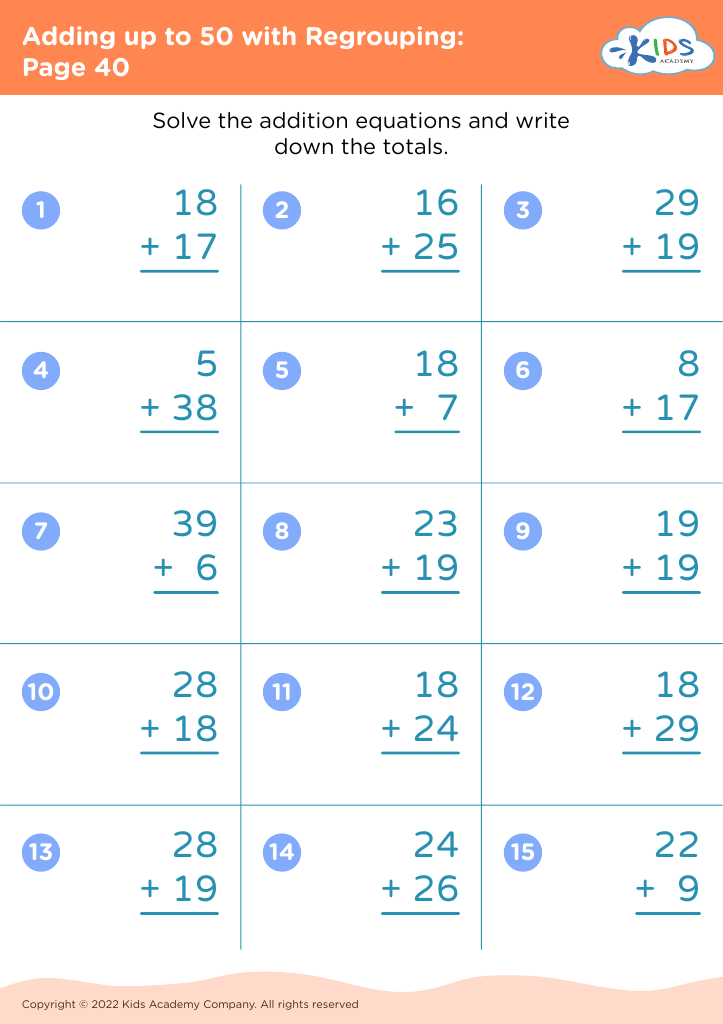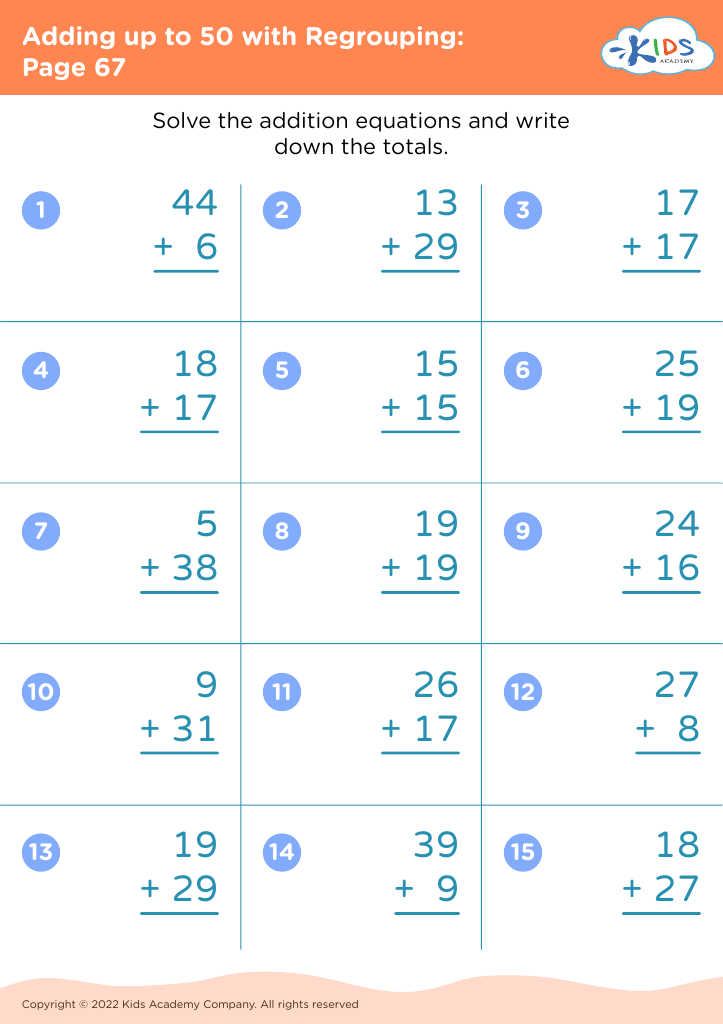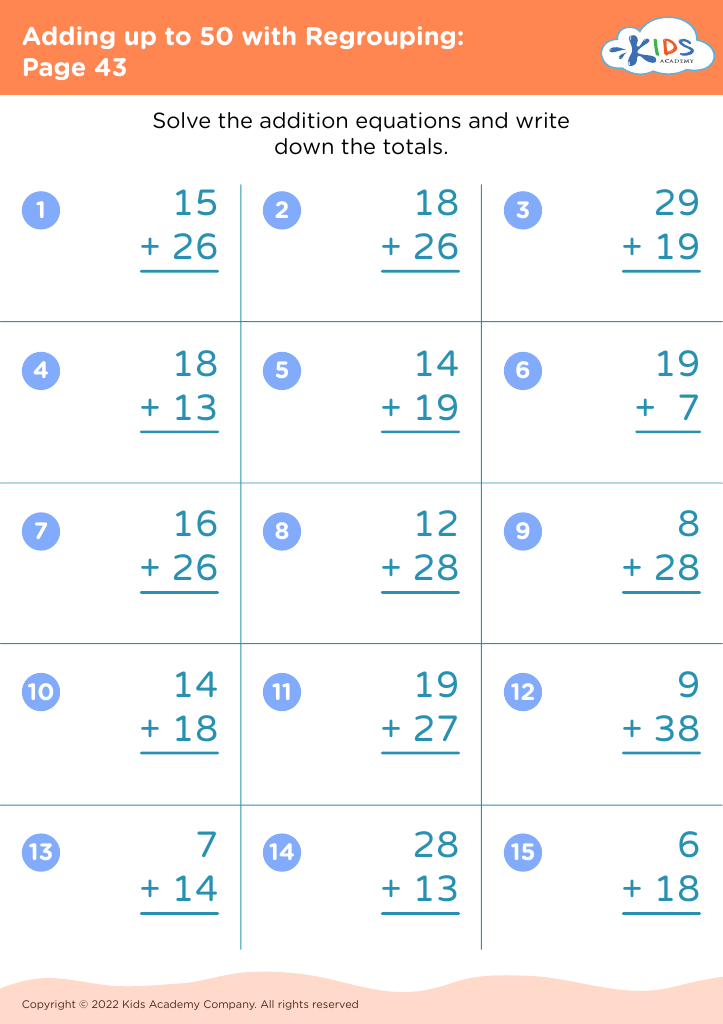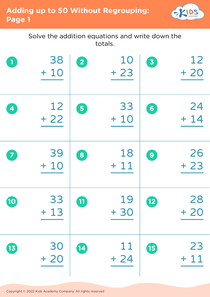Basic Math Skills Adding up to 50 with Regrouping Worksheets for Ages 6-8
5 filtered results
-
From - To
Boost your child’s math confidence with our "Basic Math Skills: Adding Up to 50 with Regrouping Worksheets" designed for ages 6-8. These engaging worksheets provide a fun and interactive way for young learners to master addition skills while introducing them to regrouping. Each printable activity encourages practice and reinforcement, helping children solve problems efficiently and correctly. Aligned with educational standards, our worksheets make learning enjoyable and effective. Perfect for classroom use or at-home learning, they are aimed at nurturing critical thinking and problem-solving abilities. Join us in empowering your child to tackle addition challenges with ease and excitement!
Basic math skills, particularly adding up to 50 with regrouping, are crucial for children ages 6-8 as they form the foundation for more advanced mathematical concepts. At this stage, children are developing critical thinking and problem-solving abilities. Mastering addition and regrouping helps them understand place values and the concept of carrying over numbers, which are essential for future arithmetic operations.
Moreover, being proficient in basic math fosters confidence in young learners. Children who struggle with these skills may become anxious or disengaged, impacting their overall attitude toward math and learning. By ensuring that children grasp these foundational skills, parents and teachers can set them up for success in higher-level mathematics and other academic areas.
Additionally, everyday life relies heavily on math; from managing money to measuring ingredients while cooking, these basic skills are applicable and valuable. Engaging children in fun and interactive ways to learn these concepts helps maintain their interest and ignites a love for learning. Ultimately, by supporting children in mastering these skills now, parents and teachers equip them to tackle challenges in school and life with confidence and competence.
















